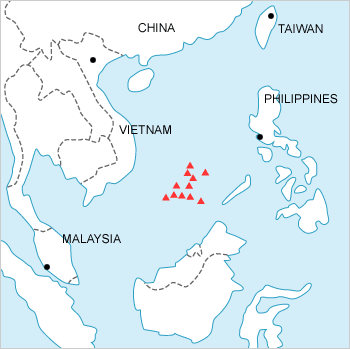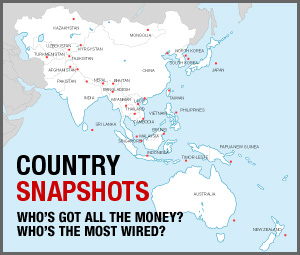
The Spratly Islands
Although there hasn’t been a significant clash over the disputed Spratly Islands archipelago since 1988, the area’s strategic and logistical importance, as well as its rich hydrocarbon reserves, suggest it will remain a potential flashpoint over the next decade.
The most important regional trend in the Asia-Pacific is China’s rise as a naval power, a development inextricably linked to Beijing’s formidable economic growth and global ambitions. China has signalled clearly its determination to become the regional hegemon in the South China Sea, and the 2009 military parade in Beijing demonstrated it is speeding up efforts to acquire amphibious vehicles that will enable it to extend its military reach to the disputed islands in the South and East China Seas.
While Beijing has worked formally with ASEAN countries to resolve the dispute and create a ‘code of conduct’ for the sea, it has also consistently acted to assert its authority over the maritime region. Since sovereignty over the archipelago (in its entirety) is claimed not only by China, but by Taiwan and Vietnam (with Malaysia and Brunei also claiming some parts), China’s ambitions and naval build-up worry other regional players.
As a result, the most dangerous scenario in the next decade is one in which the United States and its Asian and Oceania allies feel obliged to prevent China from dominating the strategic sea lane that links the Malaccan Strait to the Pacific Ocean and the Sea of Japan. The sea lane is used by more than half of the world’s super tanker traffic, and Japan is particularly dependent upon the Middle Eastern oil which is carried through the area. As a consequence, even if current estimates of the Spratly’s oil reserves (17 to 30 billion tonnes of oil and natural gas) prove to have been exaggerated, the region’s importance in terms of energy security will remain for the foreseeable future. It’s unsurprising, then, that recent US-China security talks have focused on expanding military cooperation in order to mitigate such a danger.
Federico Bordonaro is a professor of geopolitics at the Center of Excellence for Stability Police Units COESPU in Italy.











